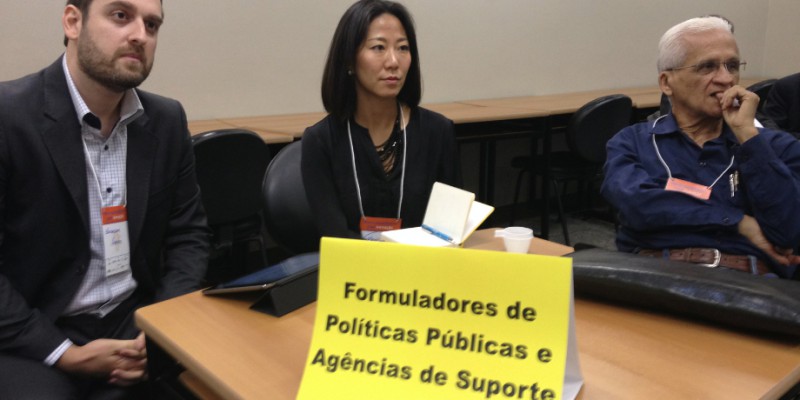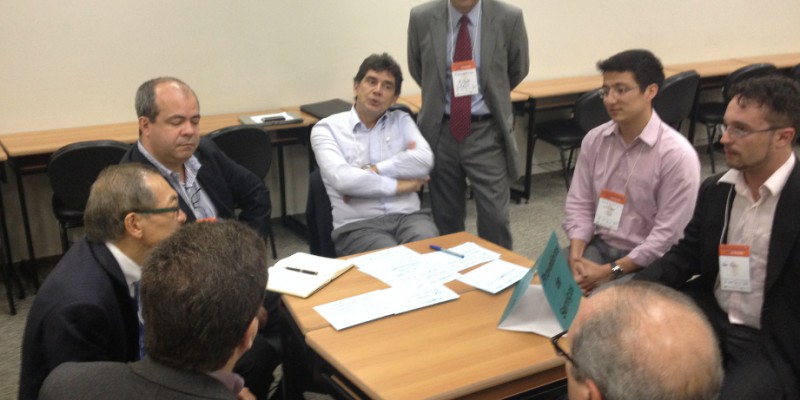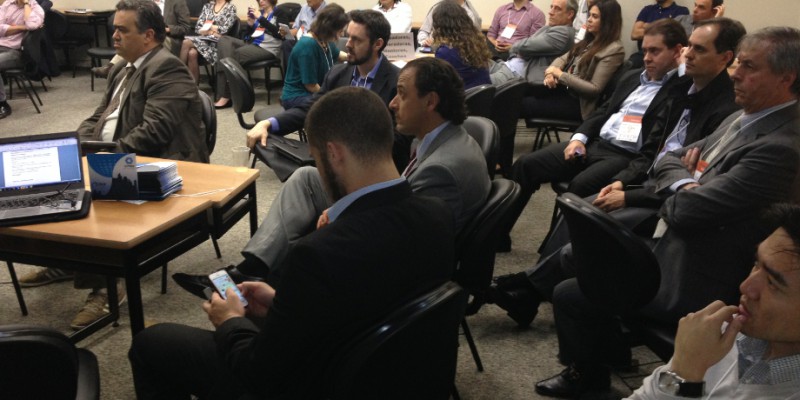Silicon Valley is example of inspirational environment for companies
On November 28, Faculdade Getulio Vargas, in Sao Paulo, hosted the “Why does entrepreneurship flow easily and innovation in Silicon Valley and not in Brasil?” meeting, aimed at discussing new practices and structures for public policies needed for development of Brazilian companies focusing on innovation.
In addition to various debates, the event included a talk by professor, PUC-PR researcher and post-doctoral scholar at the University of California, Berkeley (Haas School of Business) Marcos Schlemm. He has lived in Silicon Valley for over two years, finalizing his research, which looks at factors that lead people to innovate in the Valley. As specialist and a first-hand witness to what is happening in the region, he mentions interesting examples about the difference between the reality in the U.S. and Brazil.
“Here in the Valley, there are around 100 presentations for new projects every day; on average, 4 of them receive private funding. We have a culture where we only talk about ideas and to trust those that use trial and error. Brazil only thinks regionally, while an entrepreneur has to think globally. Managers think that it is easier to do business in Brazil rather than abroad, but the environment and culture of doing business internationally is more favorable,” he says.
The event is an initiative of IBQP (Brazilian Institute of Quality and Productivity), which has established partnerships through its iCities/IBQP Innovation Center with the University of Texas at Austin and with the School of Business at the University of California, Berkeley.
According to the IBQP, Brazil is in fact an entrepreneurial country, but the rate of innovative entrepreneurship is at 2%, one of the lowest in the world. To turn this situation around, 45 people met to debate solutions on how to make Brazilian startups attractive on the global market within, at most, eight years. Using design thinking methodology, multidisciplinary groups discussed and proposed solutions to the main problems raised.
Aspects such as entrepreneur training at universities, financing for companies and organization of innovation networks were discussed as approaches to achieving success. Among the solutions are initiatives to establish public policies for states, acceptance of the trial and error culture, breaking the hierarchy of corporations, growing the culture of entrepreneurship and interchange with regions such as Silicon Valley.
Texbrasil, in partnership with IBQP, will organize the second Innovation Mission to Silicon Valley, scheduled to take place in February 2015. Find out more at: www.texbrasil.com.br/texbrasil/mail/missao_inovacao
Missão de Inovação, Vale do Silício



